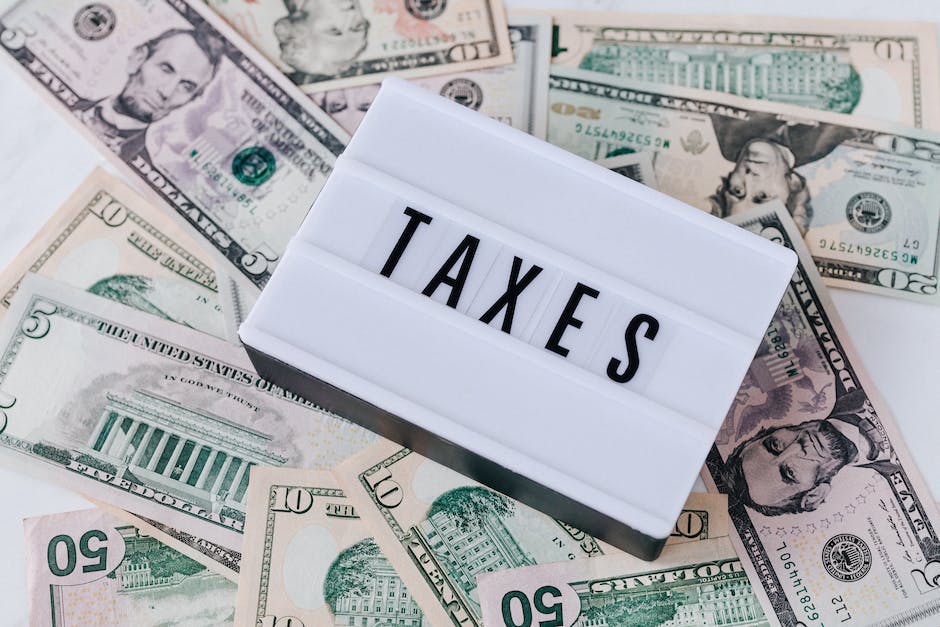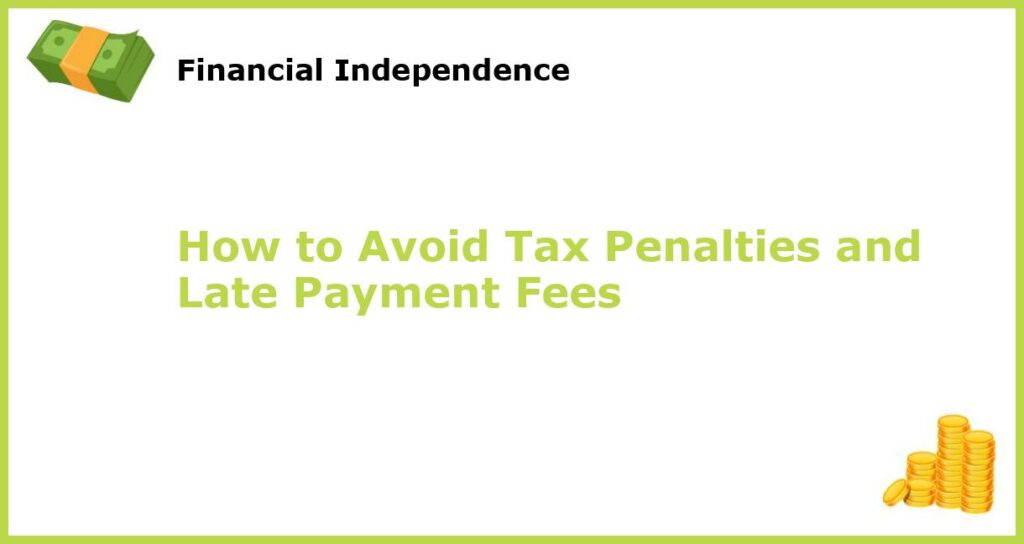Death and taxes are the only certainties in life, so they say. While death is inevitable, taxes are something that we can manage, but they can haunt us if we are not careful. It’s crucial to pay them on time to avoid tax penalties and late payment fees. We have mentioned some tips below to help you avoid these penalties and keep on the right side of the IRS.
The Importance of Paying Taxes on Time

Taxes are a vital pillar of any society, and it funds the essential government projects that benefit all of us. However, it is not merely a legal obligation. Failing to pay taxes on time can result in stiff penalties and late fees. Ignoring these penalties can make it challenging to get back on track when dealing with taxes. These penalties can pile up, and it is in your best interest to pay your taxes as quickly as possible.
Every taxpayer is justifiably concerned about avoiding the costliest mistake one can make concerning taxes: owing the IRS more money via penalties and interest. The IRS will impose the financial penalty if you file your taxes late or do not pay taxes on time. Therefore, paying taxes on time and regularly should be a top priority for every taxpayer.
Plan Ahead and Keep Track of Deadlines

To prevent late payment fees entirely, planning ahead and keeping track of deadlines is one of the best approaches. It’s helpful to prepare a tax calendar and to ensure that you meet every deadline throughout the year, as you may have multiple deadlines based on the tax situation. Keeping track of important tax-related dates is an integral part of tax compliance.
Careful record-keeping and the use of modern technology will help prevent missed deadlines, such as the ability to set up reminders on your phone or computer, or save important dates on virtual calendars available online. Planning your tax delivery meticulously and prioritizing prompt delivery can pay off big in the form of penalties avoided, and this can help to prevent panic or any oversight mistakes.
File Your Taxes Even If You Can’t Pay

Not everyone can pay their taxes on time, but filing taxes as soon as possible, even if you can’t afford it, is better than not doing anything at all. The IRS offers payment plans and opportunities to catch up on taxes over time. If you can’t make payments in time, it’s essential to contact the IRS and let them know you are having financial difficulties. Failure to file taxes on time will lead to penalties and an increase in your tax bill due to interests that will continue to grow over time.
By filing your taxes before the deadline, you avoid the failure-to-pay penalty that the IRS would impose for every month past the due date, which is half a percent of the outstanding tax liability. The failure-to-file penalty is up to ten times more severe than the failure-to-pay penalty. Careful consideration of reporting deadlines and the cost of interest and penalties can save you a lot of money in the long run.
Get Professional Help

Tax laws are complex, and taxpayers often face many difficulties in navigating them; it’s crucial to seek expert guidance if you are struggling with taxes. Tax professionals can provide expert advice to individuals on how to efficiently deal with taxes and help you find ways to decrease your tax obligation. They can also help you work out a payment plan and prevent tax penalties and late payment fees. Professional help is beneficial for individuals who are unsure of their tax obligations, who need guidance on tax planning, and who have unusual or complex tax situations.
Sometimes, expert advice can be the difference between avoiding heavy taxation penalties and running into severe financial trouble. And hiring a tax professional is not always expensive, a professional who can save you money is more than worth their fees.
File Electronically
Filing your taxes electronically is a faster and more accurate way to ensure that your return is processed quickly. You eliminate the risk of critical mistakes that could result from confusing tax documents or handwritten mistakes, making e-filing faster and easier to track the status of your return. Furthermore, many tax software programs offer error-checking features that detect potential mistakes before you electronically submit your return.
By filing electronically, you can eliminate human error, which is prevalent when filing paper returns, and this translates to the IRS processing your return faster. Faster processing may imply that you are likely to get a refund quickly, which may come in handy if you are in dire need of money.
Consider Using Direct Deposit
Receiving your refunds through direct deposit might be an option to avoid penalties and reduce delays. Direct deposit is substantially quicker compared to waiting for paper checks, and it reduces the risk of your check being lost or stolen. It also eliminates the hassle of collecting the check and depositing it into your account. By using direct deposit, you bypass the need for paper checks and envelopes, which is a more environmentally friendly option.
It’s essential to note that direct deposit is only available to taxpayers who have provided their banking details to the IRS, and you can set this up on the IRS website.
Keep Records of Your Taxes
Tax records need to be kept for different periods, depending on various factors, and they often come in handy in resolving tax disputes. Ensure that you keep copies of your tax returns, payment records, and any other relevant documents. This is because certain legal tax disputes may require you to provide evidence to show that you have paid your taxes, and this is where having these documents comes in handy.
Additionally, keep records of any communication with the IRS, including emails, telephone conversations, and letters. If you face any issues or penalties, you can easily resolve the issue with relevant documentation. Keep tax records in a secure place to be safe from unauthorized access, and as a precaution, make digital copies of relevant documentation. It is a good practice to have complete records of your taxes before filing your tax returns.
Stay Informed
Tax laws and regulations tend to be dynamic; it is essential to stay up-to-date with the latest laws to avoid penalties and late payments. Keep reading up on any changes in tax laws that may affect you to ensure that you are entirely taxed compliant. To understand the laws better, you can also use other resources such as the IRS website, tax software programs, and expert advice.
Remember that it is your responsibility to ensure that you are compliant with your tax obligations. Therefore keep records, keep up with the laws, and stay compliant.
Conclusion
Paying taxes on time is our civic duty and our contribution to building and improving society. Failure to pay taxes on time should be avoided as it will result in stiff penalties and late fees. The IRS imposes financial penalties for failure to file or late payment of taxes. Avoiding these penalties is possible if you plan ahead, keep track of tax-related dates and deadlines, keep records, stay informed about tax laws and your rights, and use technology such as tax software to your advantage. Tax professionals can help you deal with tax issues and minimize the tax burden.
Avoid tax penalties and late fees by ensuring that you comply with tax law requirements. By paying taxes on time, you not only avoid penalties, you contribute to important social projects and the greater good of society as a responsible citizen. So get informed, plan ahead, and manage your taxes to ensure a prosperous and peaceful future.







